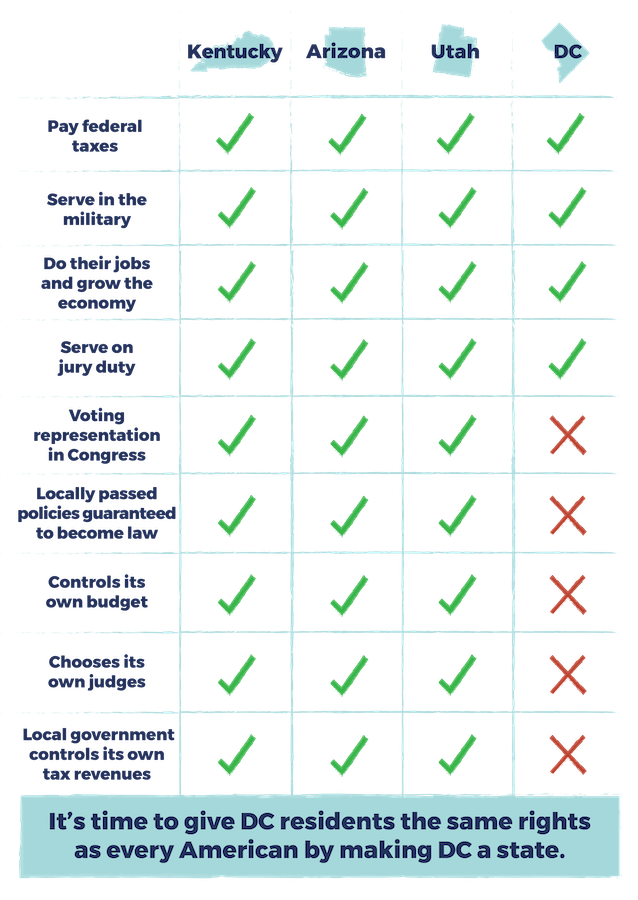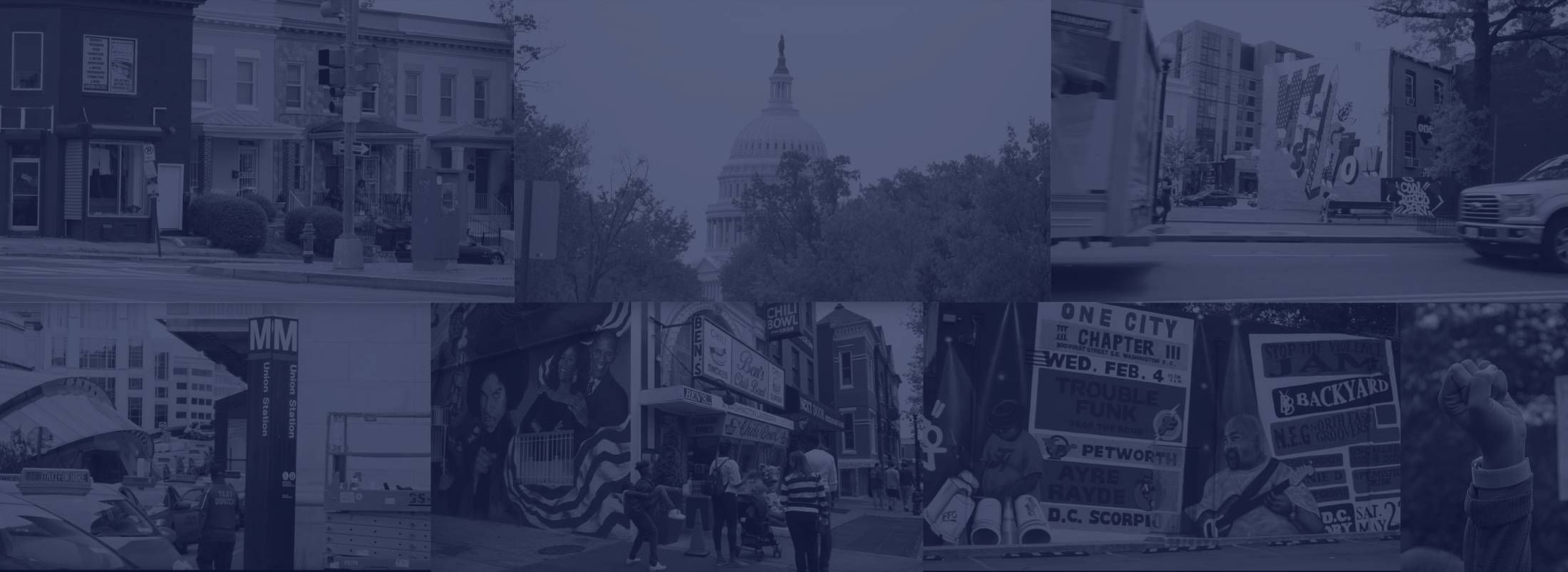Like our counterparts in all 50 states, D.C. residents pay federal taxes, serve in the military and on juries, start businesses and families, and contribute to our national economy.
Yet, we are still unable to control our own budget or our own laws, and we still have no votes in Congress.
That’s taxation without representation — we pay taxes, but have no say in how our tax dollars are used.
Read on to learn about how D.C.’s status negatively affects everyone who lives here:

D.C. residents are at a fiscal disadvantage
Although Congress has denied D.C. statehood, we still have to perform the functions of a state in addition to those of a city government. That strains our public services like schools, first responders, the Department of Motor Vehicles, mental health services, and higher education institutions.
D.C.’s largest employer is the federal government, which uses our local services but often does not pay property, sales, or income taxes — and neither do foreign embassies and international institutions. When large events like inaugurations and demonstrations take place, the federal government doesn’t necessarily reimburse D.C. for all of the costs associated with them.
Marijuana
Residents of D.C. passed Initiative 59, legalizing medical marijuana, in 1998. But implementation of the initiative was delayed when Republican Congressman Bob Barr of Georgia added an amendment to D.C.’s congressional budget bill that prohibited D.C. from using the money in that appropriations bill to enact the medical marijuana program. After over a decade of unnecessary pain, risk, and illness for would-be medical marijuana patients in D.C., the ban was lifted in 2010.
In 2014, D.C. voted overwhelmingly to back a ballot measure legalizing the possession, cultivation, and gifting of certain amounts of recreational marijuana. But a single Republican congressman, Andy Harris of Maryland, effectively overruled the will of D.C. voters by attaching a last-minute addition to D.C.’s congressional budget bill that prohibited D.C. from spending money to create a tax and regulation system for marijuana sales, making it impossible to actually sell marijuana.
Abortion
For all but two years since 1989, Congress has consistently prohibited D.C. from using its locally raised funds to pay for abortions for Medicaid recipients through a rule known as the Dornan Amendment. The amendment states that no congressionally appropriated funds may pay for abortions in D.C., and since Congress controls D.C.’s budget, all of D.C.’s funds are congressionally appropriated. Local nonprofits are forced to pick up the slack, but funding is always an issue, meaning lower-income D.C. residents don’t always have access to the full bodily autonomy guaranteed to all Americans by Roe v. Wade.
Reproductive Health
In 2014, the D.C. City Council passed the Reproductive Health Non-Discrimination Amendment Act of 2014 to protect workers from discrimination by an employer based on individuals’ private health decisions, including having an abortion or using birth control. However, Texas Senator Ted Cruz convinced then-House Speaker John Boehner to vote to overturn the D.C. law. It passed the Republican-controlled House by a vote of 228-192 in 2015. It was the first time in 35 years the House voted to outright overturn the will of the people of D.C. — and it was an effort driven by one senator from over 1,000 miles away.
Gun Violence Prevention
Republicans in the Senate have used D.C.’s rigorous gun laws as a wedge issue. The last major attempt to give D.C. voting representation in the House in 2009 was disrupted by a fight over D.C.’s right to protect its residents from gun violence. In order to sabotage the statehood effort’s growing momentum, the Republican-controlled Senate attached an amendment to its version of the statehood bill that would have overturned the city’s recently tightened gun laws. While the bill was never introduced in the House, it successfully passed the Senate and halted the push for statehood.
HIV
D.C. wanted to implement a needle exchange program to reduce and contain the spread of HIV and improve the public’s health. From 1999 to 2007, Congress actively blocked D.C. from using its own money to fund needle exchange programs, a proven way to prevent the spread of disease. As soon as the ban was lifted in 2008, HIV transmission rates significantly dropped.
Courts
When someone is indicted for a crime in any of the 50 states, they are tried in local courts with judges from the local community. In DC, federal prosecutors try our cases, and our judges are nominated by the President of the United States and confirmed by the Senate, where we don’t have a vote.

